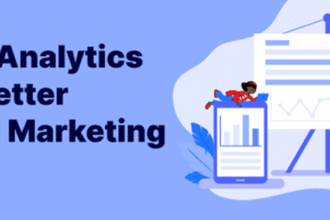The value of big data can’t be overstated for businesses nowadays. The collection and analysis of data has allowed thousands of businesses to make decisions that are driven by that data, lending their decisions more weight and credibility – and even predicting the future with machine-learning.
The value of big data can’t be overstated for businesses nowadays. The collection and analysis of data has allowed thousands of businesses to make decisions that are driven by that data, lending their decisions more weight and credibility – and even predicting the future with machine-learning.
But how can you actually become a business driven by data? The idea of being able to make powerful decisions based on hard evidence is something many businesses crave, but implementing this kind of system can be challenging, to say the least. Here are a few steps you can take in order to build your data strategy.
Collect the data
The first, and arguably the most important step to becoming a data-driven company, is to start collecting the data. You can’t make those all-important decisions without it.
Start off by acquiring a simple cloud-based software platform, and store as much data as you possibly can. Don’t discriminate on the data you store at this stage – you don’t know what might come in handy further down the line. There might be certain metrics that are totally useless, but you won’t find out until the point of analysis. A simple rule of thumb is this: if you’re not sure what to collect, collect it all!
Get the IT support
If you’re collecting and storing massive amounts of data, you’ll need an IT support strategy that can deal with. Older IT structures might stand in your way, so be prepared to implementing something entirely new, which will help in sourcing, storing and analysing data as you collect it.
Set business goals
There’s no point in developing a data-driven strategy if you’re not moving towards a goal. Think about all the different ways that data could help you grow, and set measurable targets which will spur you on. These targets and goals will also help you to measure performance, so you can see how well your data strategy is working. If you’re three months into the data implantation project and have only noticed minimal progress, perhaps you need to go back to the drawing board or simply make a few tweaks to your setup.
Bring in data experts
To get the very best out of your data, you need to take on someone who understands how to leverage and analyse all of the data you’re collecting. A smaller business could feasibly take on just one or two people to analyse the data, but larger firms should look at developing a data team who can perform important analysis on all of your data, as well as translate what the results mean for your business.
Article originally published on Big Data LDN







